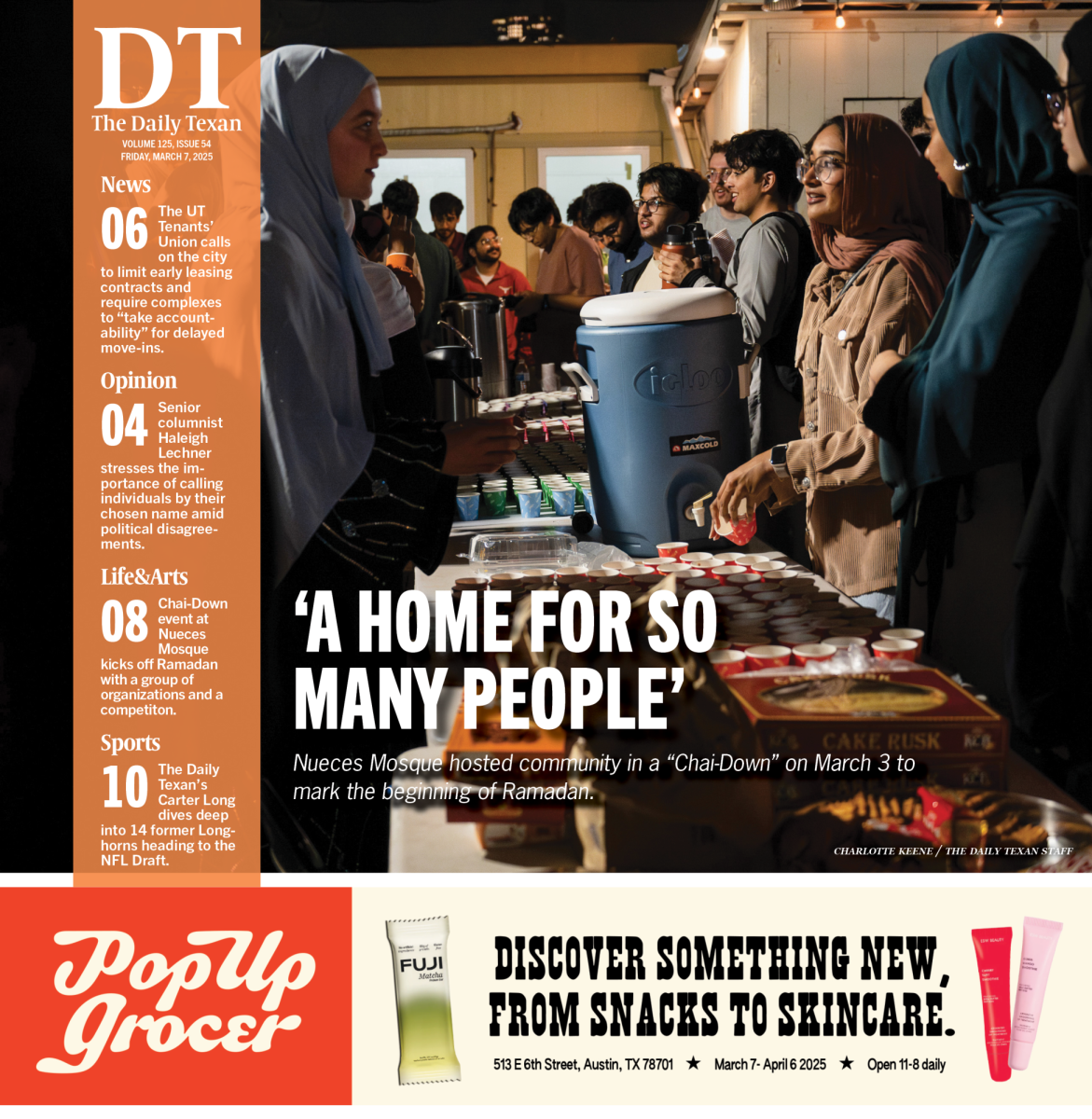Sanger Learning Center should increase the diversity of tutored languages.
April 28, 2022
In many degree plans at UT, experience in a foreign language is required. For some students, this is no big deal due to previous experience or previously-earned credit from high school. However, the students who do not share this experience face a rigorous course load and the difficult task of trying to understand a new language.
Students stuck in this position often seek out help from the Sanger Learning Center. However, students are often quickly displeased to find that Sanger Learning Center only offers Spanish and French tutoring. Students that need help with other languages are either forced to find outside tutoring or find help through other organizations.
Sanger Learning Center should provide a broader diversity of tutoring opportunities for students wishing to improve in non-traditional foreign languages.
To deal with this issue, students have taken matters into their own hands and started creating student-led language learning groups. An example of this can be seen in UT Pals, a group dedicated to introducing international students to American students for the purpose of practicing languages.
Sophomore finance major Juan Royo described his experience with UT Pals.
“It’s basically small groups of people who partner to advance language study. … It’s normally just an hour a week, and people go and … have really good, productive conversation,” said Royo. “There’s 30 people in the chat … but it’s definitely something that I see getting more popular as people learn about it.”
First-year neuroscience major Oriana Pineda described her experience and linguistic improvement in groups formed through UT Pals.
“I’m part of the Portuguese language circle. … We just kind of meet up and talk about our weeks in Portuguese. … Even if you’re not talking about academic topics, you’re still practicing those grammar points, so it still helps you in the classroom,” Pineda said.
Clearly, there is a high demand for small tutoring and learning sessions dedicated to practicing a language. If such high demand and need for additional learning opportunities exist, why hasn’t the University done anything to help?
Paige E. Schilt, Director of the Sanger Learning Center, provided some insight into the obstacles that prevent UT staff from tutoring a wider variety of languages.
“Right now we just offer French and Spanish, and that’s because we have a responsibility to our tutors to make sure that there’s enough demand that they can get enough hours for the job to be worth their time,” Schilt said, “If we were going to try to keep a tutor or multiple tutors gainfully employed, we would need to know that the department felt confident in our services and was willing to refer students to Sanger tutoring.”
It makes sense that to invest resources to hire tutors, Sanger Learning Center needs to verify a strong demand for tutoring in languages other than French and Spanish. However, while the administration knows this lack of information about student demand is an issue, it hasn’t done anything to help. UT could be taking a more proactive approach towards seeking out this necessary data, such as conducting student surveys or talking directly with language departments.
It’s admirable to see UT students taking it upon themselves to help out their fellow students in their pursuit of higher education. However, this responsibility should not lie with students, but with the University administration, who has an obligation to the student body’s quality of education.
UT needs to increase the variety of foreign language tutoring opportunities offered in the Sanger Learning Center instead of pushing this responsibility onto its students. Otherwise, UT risks neglecting a large portion of the student body that only wishes to learn.
Michael Zhang is an undeclared PACE freshman from Katy, Texas.












